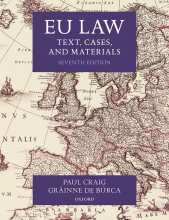Summary: Various Concepts Of International Law
- This + 400k other summaries
- A unique study and practice tool
- Never study anything twice again
- Get the grades you hope for
- 100% sure, 100% understanding
Read the summary and the most important questions on Various concepts of international law
-
1 Lecture 1; introduction to public international law: history and sources
This is a preview. There are 8 more flashcards available for chapter 1
Show more cards here -
Sources of international public law
Article 38 Statute of the international court of justice- international conventions
- international custom (opinio iuris)
- teachings of the most highly qualified publicists of the various nations
- judicial decisions
Not mentioned but still important- decisions of IO's
- ius cogens: most fundamental international law principles
- unilateral acts
- soft law
-
Consent v. Opinio iuris
Is consent absent in an opinio iuris?- YES level of consent, states have to choose to comply with a custom. Thus consent is indirectly within the practice
- NO it does not entail a signature or ratification. Thus even states that are not in agreement with the custom, still are bound to it.
-
Advisory opinion ICJ; who/ what does the court do/ what are the legal effects?
Who may ask for anadvisory opinion ?
65 Statute ICJ- General
Assembly andSecurity Council (96Charter ) - Other
organs of theUN (96(2)Charter ) - it has to be within the scope of their activities
Nuclear Weapons in armedconflict AO ICJ --> principle ofspeciality
What does the court do?- answer a legal question
settling adispute is NOT the goal- it can however be the
consequence of the answer given by court
Legal effects?opinions are merelyadvisory and thus notlegally binding- in
practice theICJ carries a big legalweight andparties willrespect the great legalweight anopinion has.
- General
-
Judgement ICJ; who/ what does a court do/ legal effects
Who may ask for ajudgement ?- the
parties of thedispute only states!! -> article 34 Statute ICJ no individuals nor organizations
what does the court do?- the main goal is dispute settlement
What are the legal effects?- judgment is legally binding and states are bound to implement the judgement
- art. 59 Statute ICJ
- if states do not comply with the judgement, on of the parties can go to the Security Council
- although: veto right which makes judgements sometimes useless and impractical
- international law is intertwined with international relations.
- the
-
2 Lecture 2; legal personality and immunities
This is a preview. There are 10 more flashcards available for chapter 2
Show more cards here -
Definition of international legal personality
ICJ Reparations for injuries AO 1949
(legal question (read not learn): Since Bernadotte was an UN official and acted in UN capacity, can the UN impose an international claim to hold Israel responsible for having committed/failing to prevent his assassination? In essence this is about legal personality the UN did or did not possess)
Concluding that the UN is an international person means that is is a subject of international law and capable of possessing international rights and duties, and that it has capacity to maintain its rights by bringing international claims. -
Rights and obligations (can) come with international legal personality
- Treaty making capabilities
- immunities and privileges
- legal responsibility for violations of international obligations
- capacity to be a party in a legal dispute
- capacity to bring an international claim before a court
- Treaty making capabilities
-
Theories on possessing legal personality
- Will-theory
- looking at the will and intention of those who created an entity
- primarily looking at what is written in the treaty
- for example art. 47 TEU: not referring directly at the legal personality, but intention is ''international'' thus personality is given)
- objective theory
- looking at objective factors
- e.g entity created in accordance with international law
- theory of presumptive personality
- presuming an IO has legal personality
- otherwise it will not be able to act
- This logic is followed by the court
- Reparations for injuries ICJ AO 1949
- Will-theory
-
Legal personality at national level; in Member States
Mostly legal personality is granted by the constituent treaty- art. 104 Charter -> legal personality of UN
-
Legal personality at national level; in non-Member States
Non-MS must recognize legal personality.
Arab Monetary Fund (AMF) v. Hashim and others (House of Lords; 1991)
(legal question (read not learn): the UK is not a member of the AMF, could the AMF do something in an UK Court? To what extend can an IO do something in a non-MS? )
The legal personality can be recognized by a non-MS via the courts giving recognition by a committee of nations to a legal personality created by the law of another nation
AMF can sue mr. Hashim before an UK Court, thus accepting the legal personality -
Actions against an abusive diplomat
- Persona non grata (by receiving state)
- receiving state sends the diplomat back because he is unwanted
- waiver of immunity (by sending state)
- the sending state waive the immunity away and gives the receiving state the possibility to act against.
- Persona non grata (by receiving state)
- Higher grades + faster learning
- Never study anything twice
- 100% sure, 100% understanding































